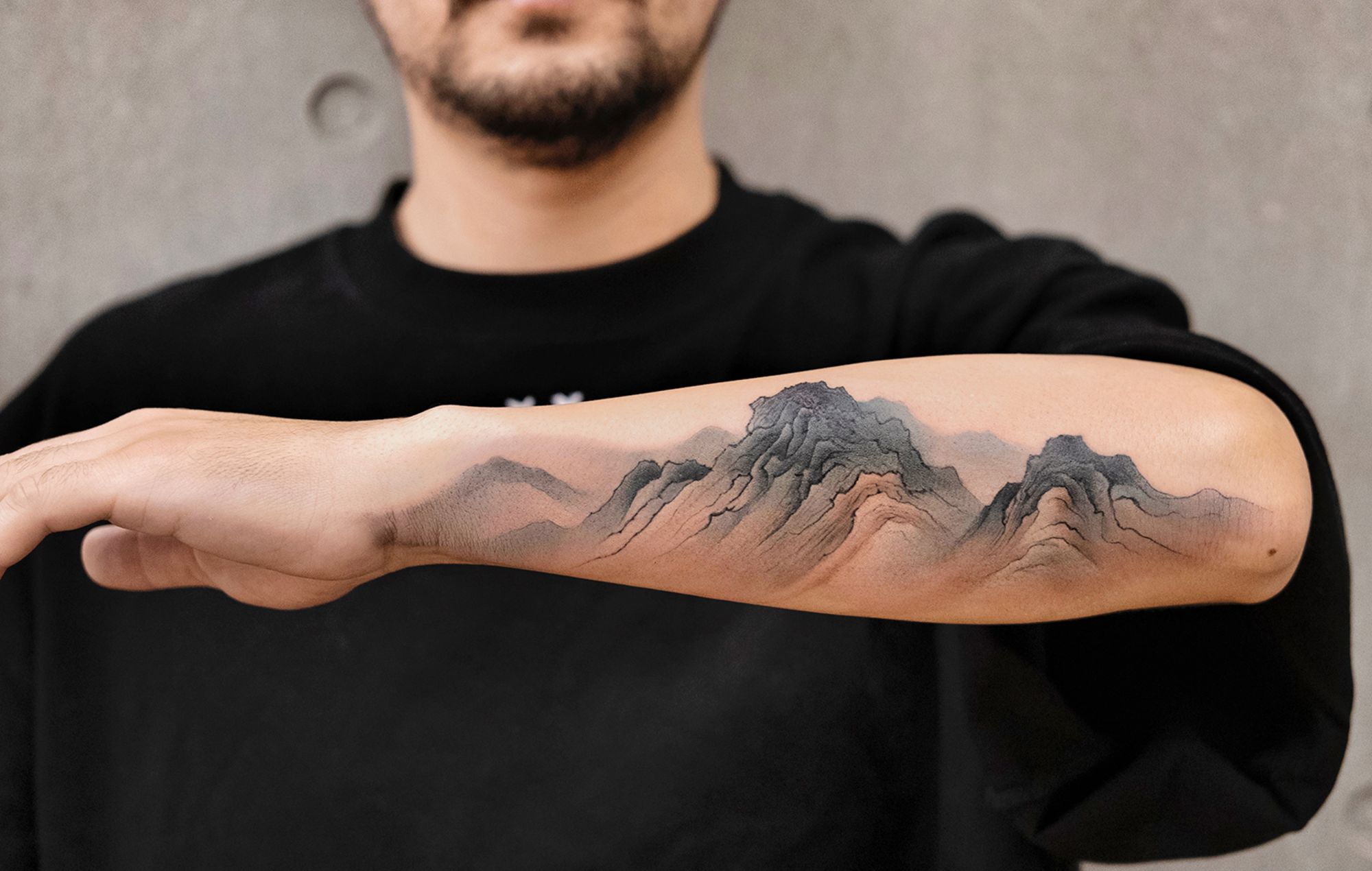A version of this story appeared in CNN’s Meanwhile in China newsletter, a three-times-a-week update exploring what you need to know about the country’s rise and how it impacts the world. Sign up here.
“My behavior encroached on the physical and mental health of minors,” read a court-ordered apology issued by a tattoo artist in China’s Shaanxi province in September. “I am deeply aware of my mistakes,” he added.
The man, who had admitted giving tattoos to 43 minors, became one of the first people charged under a new age restriction law, which came into effect in June. But while many countries enforce similar rules banning young people from getting inked, Chinese state media coverage suggested that protecting minors was as much about ideology as medical welfare.
At the time, tabloid newspaper Global Times argued that tattoos are “driving minors away from establishing socialist core values,” as they can convey “harmful ideas” such as “feudal superstition,” “gang culture” and “overseas culture.” An op-ed in Beijing Youth Daily meanwhile said that tattoo subculture “clashes” with the mainstream.
The legislation, which bans people from even encouraging those aged under 18 to get tattoos, is just the latest move in an expanding crackdown on body art in China.
With the ruling Communist Party’s nationalist agenda shaping everything from movies to architecture, it’s perhaps no surprise that the country’s officialdom is increasingly linking tattoos with immorality and Western influence.
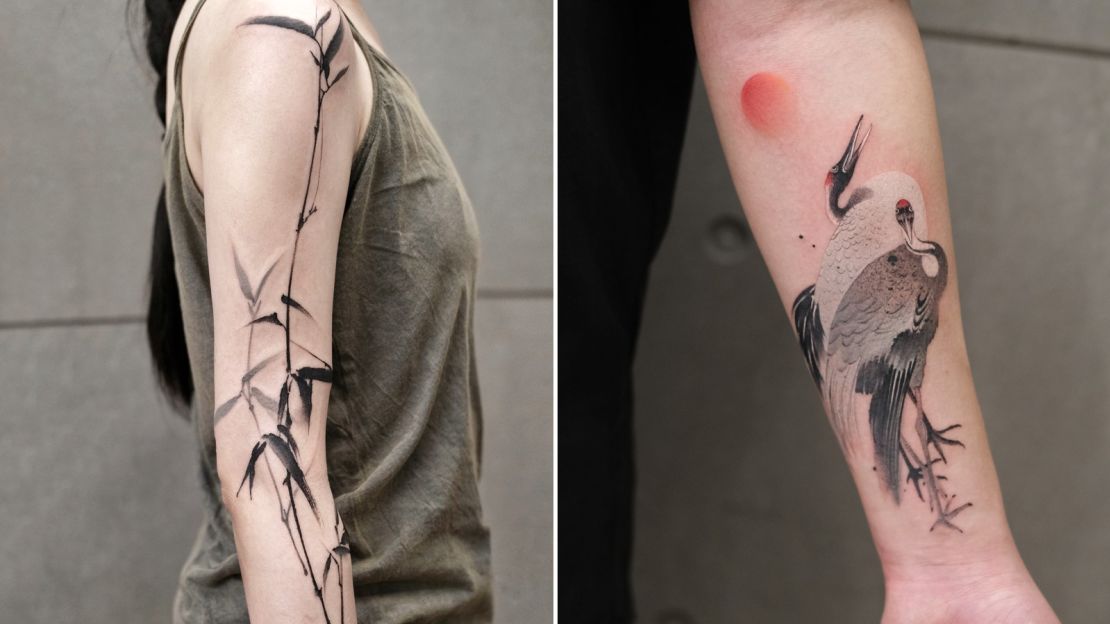
In 2017, the State Cyberspace Administration made it illegal to show tattoos during live-streaming or in videos posted to social media. The next year, China’s media regulator ruled that TV stations “should not feature actors with tattoos (or depict) hip-hop culture, sub-culture and immoral culture,” according to state media. More recently, soccer players representing China have been prohibited from getting new tattoos, with sports authorities ordering those with existing body art to remove or cover it to set a “good example for society.”
Many public sector organizations have explicitly stated in job descriptions that people with tattoos are not eligible for certain roles, including police officers, firefighters and even highway toll collectors. In 2020, officials in the northwestern city of Lanzhou ordered taxi drivers to remove “large tattoos” on the grounds that they “may cause women, children and other passengers feel psychological discomfort.”
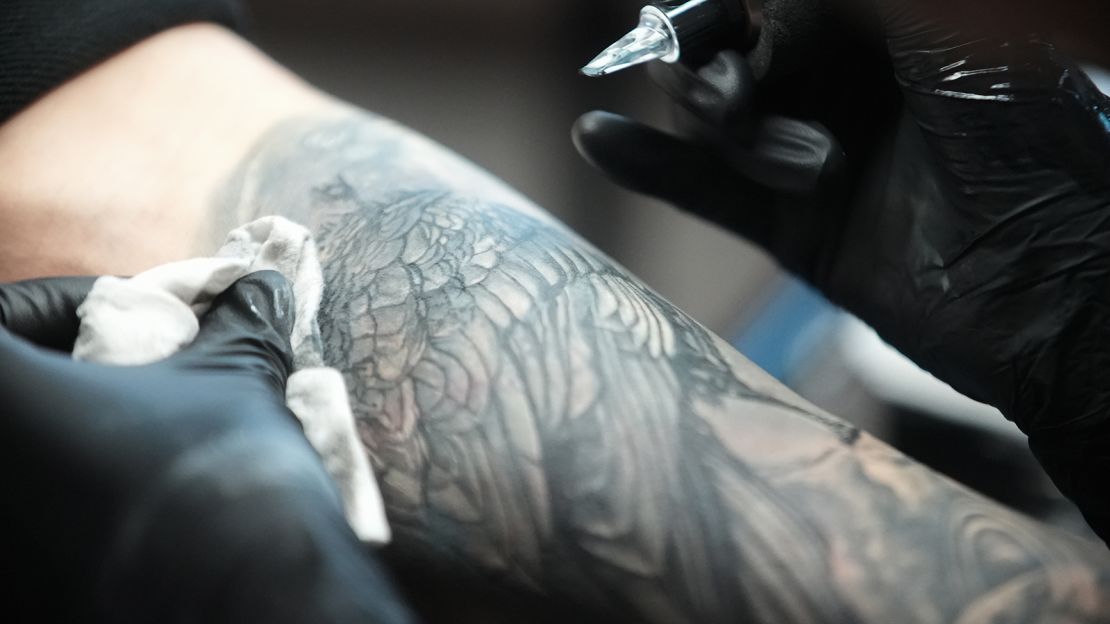
Stereotypes surrounding tattoos are partly rooted in historical associations with criminality. In ancient China, marking offenders’ faces with permanent ink was considered one of the “Five Punishments” alongside execution and amputation.
Gareth Davey, a visiting professor at China’s Yunnan Normal University who studies the country’s tattoo culture, explained that stigma also stems from Confucian values.
“In Confucianism, conserving the skin and body inherited from parents was an exemplar of filial piety, and deemed necessary for a civilized society,” he said in an email interview, “whereas tattooing signified an uncivilized practice and a failure to uphold family duties.”
He added that tattooing is more stigmatized in China than the West because “people value doing what is best for society and fulfilling obligations in social relationships.”
A form of self-expression
Despite official disdain, more young people are getting inked today than ever before, according to Chen Jie, who started her own tattoo studio in Beijing in 2005. While her clientele was once predominantly male, she now sees a growing number of Chinese women — for whom social stigmas are often far stricter — at her studio in the capital’s bustling Sanlitun neighborhood.
“(Chinese society) is becoming more open, with so much new information now available to us thanks to the internet,” she said in a phone interview. “People used to link tattoos with thugs and gangs but now it has become a culture that’s associated with being cool.”
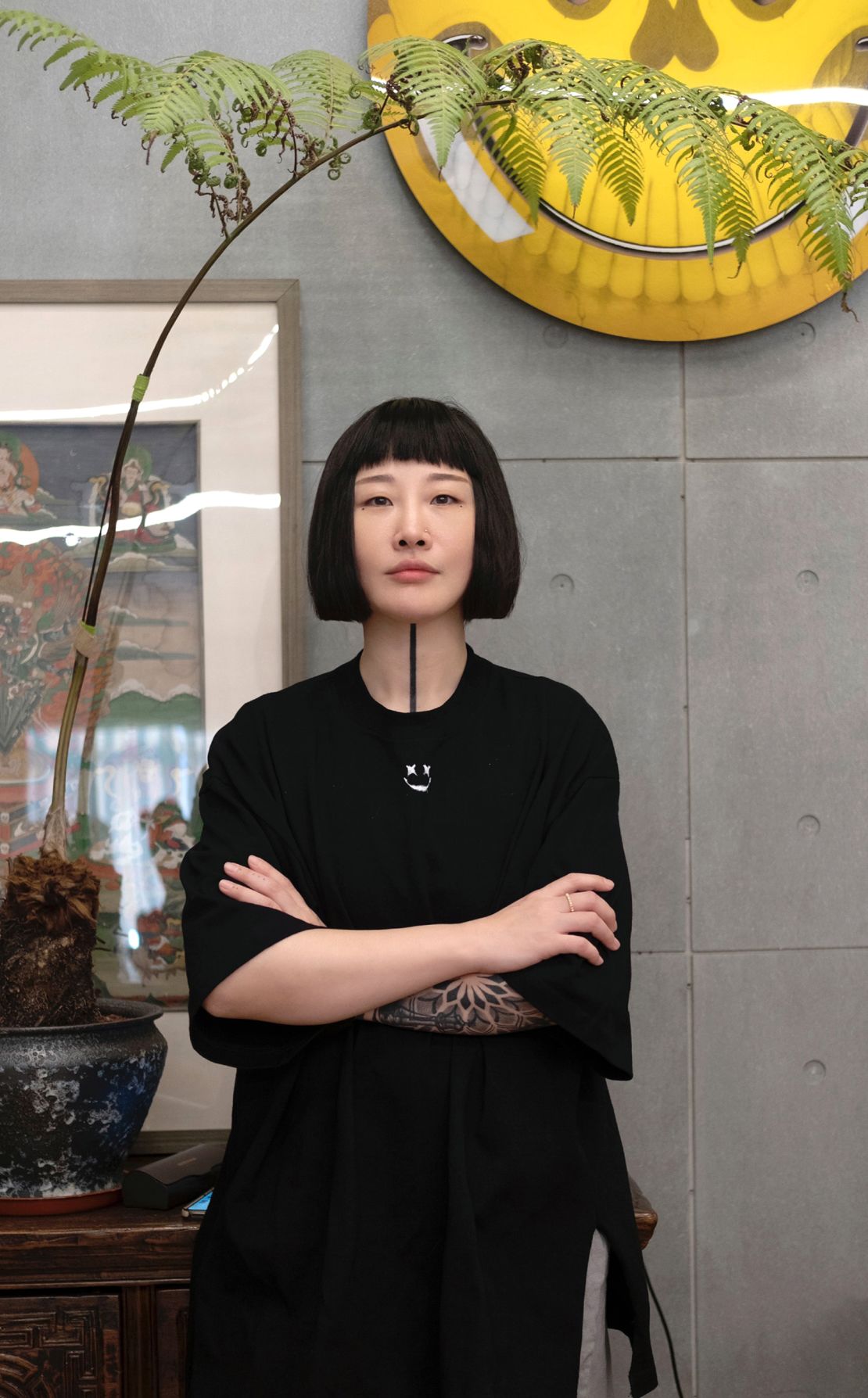
Chen is considered a pioneer of the “watercolor” tattooing style, which is inspired by traditional ink brush paintings. Using subtle coloration and gradual shading, she often depicts scenes from nature, like bamboo, cranes and the “shan shui” (literally “mountain, water”) landscapes historically found in Chinese art.
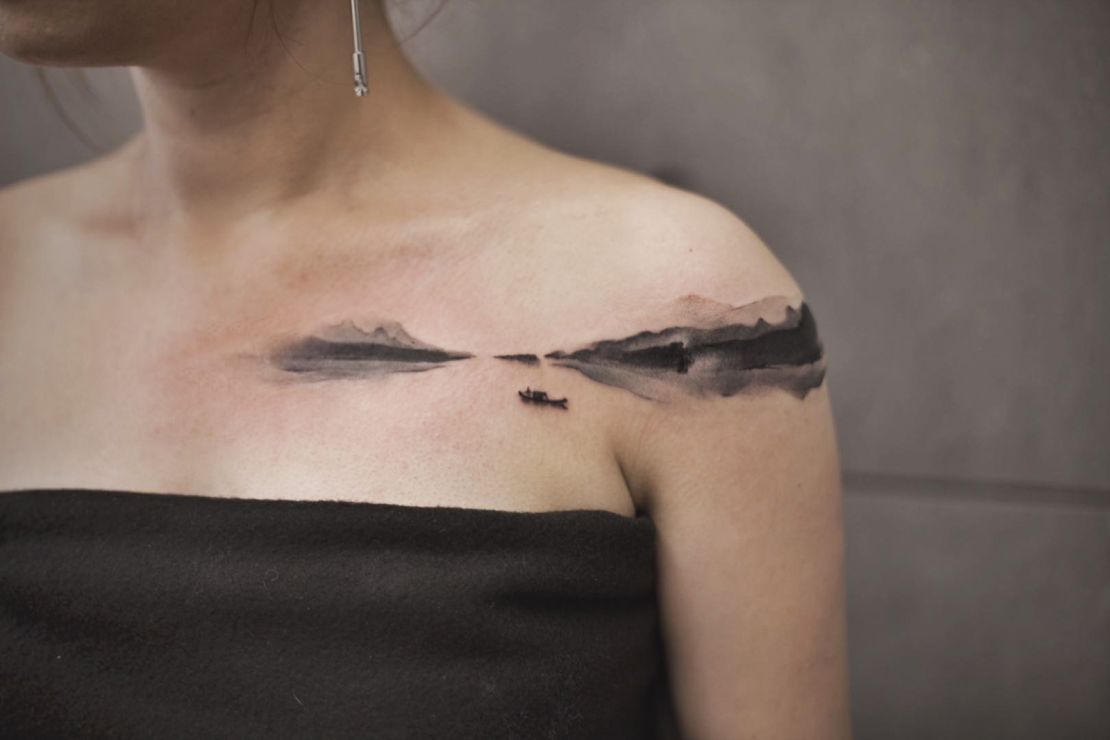
Others opt for a more realistic aesthetic, like Victoria Lee, who became a tattoo artist shortly after completing her studies at the renowned Academy of Arts and Design at Beijing’s Tsinghua University. Her photorealistic style sees her inking detailed portraits ranging from clients’ relatives and pets to pop stars and historical figures.
“I wanted to get an important family member’s portrait tattooed but I couldn’t find anyone who shared my artistic values,” she said during a phone interview, recounting how she started out in the industry. “I’ve always thought that tattoos are really cool and I thought, ‘Why not try it myself?’”
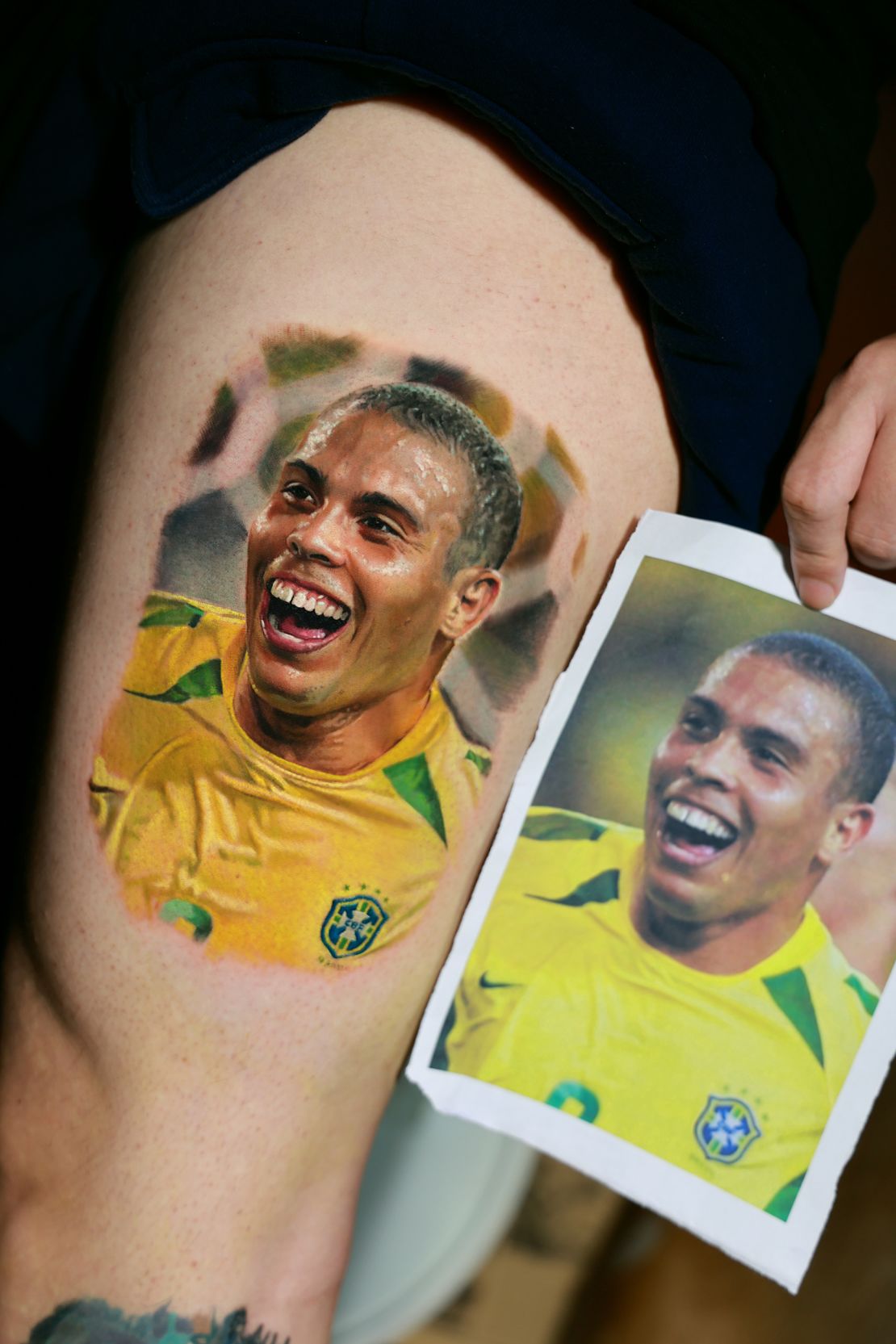
Zhao Xiang, a postdoctoral researcher at Sweden’s ?rebro University who has extensively studied Chinese tattoo culture, said that today’s young people are more likely to get tattoos as a form of self-expression. “Today, people want to see more diversity and individuality,” he said over the phone. “They like the spirit of individualism rather than a collective spirit.”
Legal uncertainty
There is no official licensing system for tattoo artists in China. As such, the industry exists in a legal gray area whereby studios operate without supervision or inspections into their safety, hygiene or aftercare practices.
“It’s still kind of a ‘half-underground’ situation,” said Song Jiayin, who owns an all-female tattoo studio in Beijing.
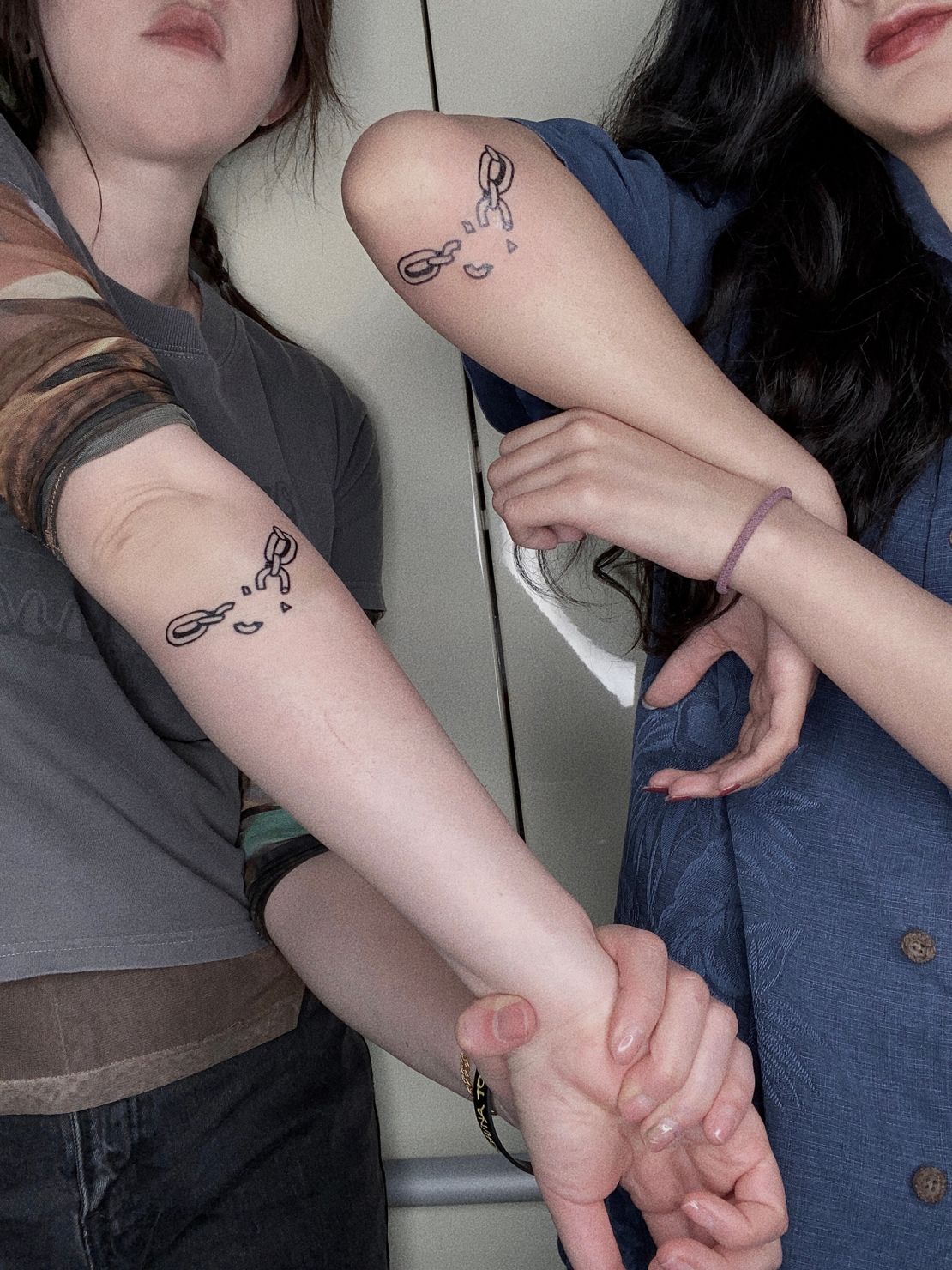
When Song opened her studio in 2016, she found that over 70% of her clients were female. She started a project called “1,000 girls,” which aims to tell the stories of 1,000 female clients and their tattoos. The project has seen her create a variety of tattoos alluding to their experiences, including a uterus-shaped tattoo for the daughter of a woman who had to have her uterus surgically removed for medical reasons. Song herself has a chain tattoo on her wrist that pays tribute to a Chinese mother of eight who was found in a rural village with a chain around her neck, sparking outrage in China last year over women’s rights.
With China’s feminists and other activists targeted by government crackdowns in recent years, Song said she has faced hostility from the authorities — including during events where she sold merchandise featuring her chain design.
“(The authorities) don’t regulate the tattoo industry because they don’t want to recognize tattoos to begin with,” she said. “It’s their way of expressing their dislike.”
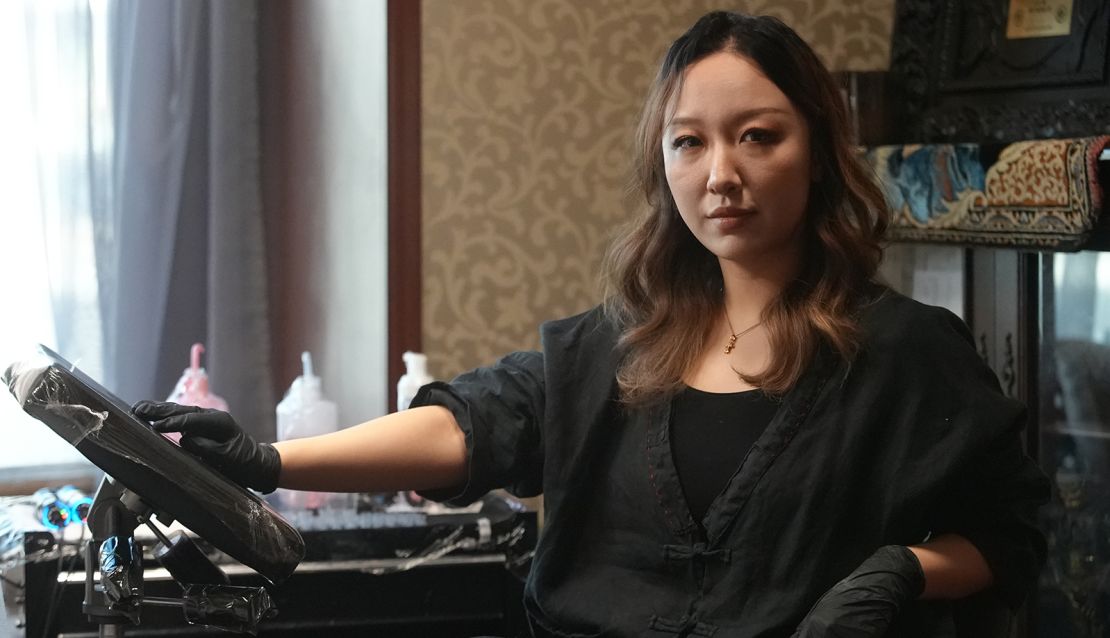
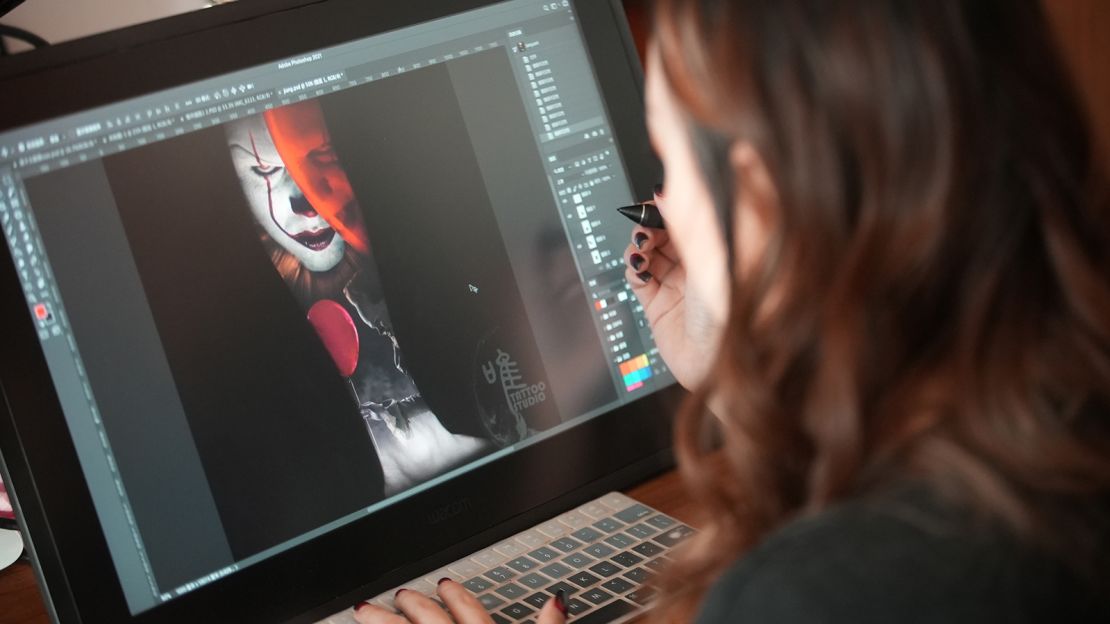
Body artists face similar legal uncertainties in South Korea — and, until a 2020 supreme court ruling, Japan — where it is technically illegal for anyone other than a medical professional to carry out tattoos. Yet, China’s National Health Commission stated in 2009 that tattooing should not be listed as a medical cosmetic procedure, while the country’s Ministry of Commerce has also said that invasive skin operations are not considered part of the beauty sector.
“Nobody is clear whether (tattooing) is under the legal provision of the beauty industry or the medical industry,” said ?rebro University’s Zhao, adding that this ambiguity extends to clients, too. “If you look closely at the laws and regulations, you may not dare to get a tattoo because, if you end up in some legal dispute, you simply have no place to go to defend your rights.”
In the months since the ban on inking minors came into effect, several “public interest” cases have been filed by state prosecutors, resulting in fines for tattoo artists. In December, for example, a Shanghai court fined one person 5,000 yuan ($739) for inking a 17-year-old, while a court in Lhasa in Tibet ordered another artist to pay 10,000 yuan ($1,477) to a tattooed minor for “psychological damage.”
The seemingly wide range of government agencies involved in enforcing the ban has only added to the confusion, said Zhao, and the latest restrictions are unlikely to be the last.
“There are just campaign-style bans coming one after another,” he added.
